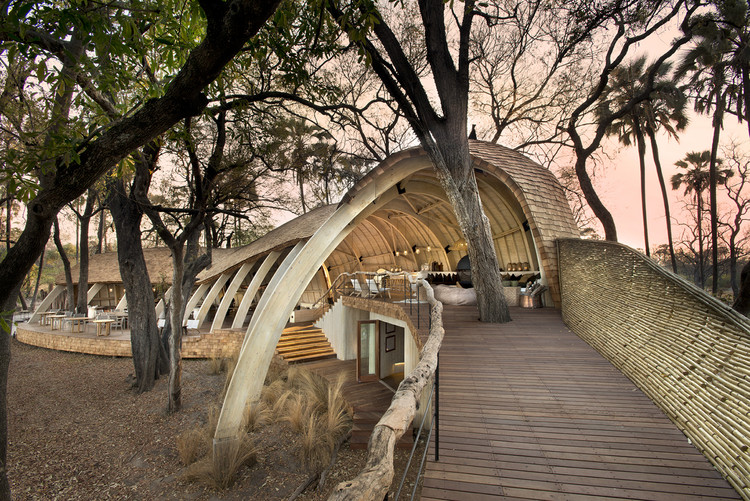
-
Architects: Nicholas Plewman Architects
- Area: 5384 m²
- Year: 2014
-
Photographs:Dook
-
Manufacturers: Serge Ferrari

Text description provided by the architects. A 24 bed luxury boutique hotel in the heart of the Okavango Delta, Botswana. The Okavango Delta is considered one of the seven natural wonders of the African continent. Since the original lodge was built seventeen years ago, it has been declared a world heritage site and in consequence a raft of wholly appropriate, but formidable restrictions have been imposed on building there.

































